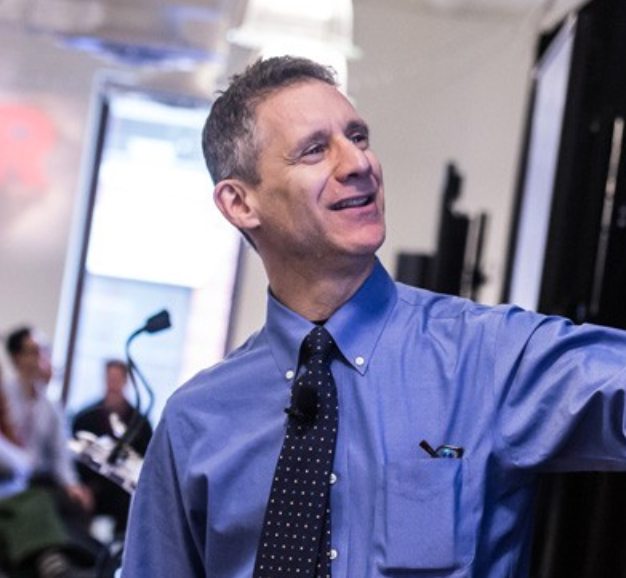Organisers
Scientific Committee
Nicolas Chopin (ENSAE)
Mike Gartrell (Criteo)
Alberto Lumbreras (Criteo)
David Rohde (Criteo)
Otmane Sakhi (Criteo)
Maxime Vono (Criteo)
Organising Committee
Tatiana Podgorbunschih (Criteo)
Previous Editions
| July 21st, 2021 | Yixin Wang |
'Representation Learning: A Causal Perspective | |
| June 9th, 2021 | 
Patrick Gallineri |
Dynamical state-space models for videos: stochastic prediction and spatio-temporal disentanglement |
>> Replay |
| May 19th, 2021 | Simon Barthelmé |
Kernel matrices in the flat limit |
>> Replay |
| April 21st, 2021 | 
Frank van der Meulen |
Automatic Backward Filtering Forward Guiding for Markov processes and graphical models |
>> Replay |
| Apr 7th, 2021 | 
Rémi Bardenet |
Monte Carlo integration with repulsive point processes |
>> Replay |
| Mar 24th, 2021 | 
Anthony Lee |
A general perspective on the Metropolis–Hastings kernel – Part 2 |
>> Replay |
| Mar 17th, 2021 | 
Christophe Andrieu |
A general perspective on the Metropolis–Hastings kernel - Part 1 |
>> Replay |
| Feb 24th, 2021 | 
Florence Forbes |
Approximate Bayesian computation with surrogate posteriors |
>> Replay |
| Feb 10th, 2021 | 
Art Owen |
Backfitting for large scale crossed random effects regressions |
>> Replay |
| January 27th, 2021 | 
Omiros Papaspiliopoulos |
Scalable computation for Bayesian hierarchical models |
>> Replay |
| December 16th, 2020 | 
Sara Wade & Karla Monterrubio-Gómez |
On MCMC for variationally sparse Gaussian process: A pseudo-marginal approach |
>> Replay |
| December 2nd, 2020 | 
Nicolas Chopin |
The Surprisingly Overlooked Efficiency of Sequential Monte Carlo (and how to make it even more efficient) |
>> Replay |
| November 18th | 
Sarah Filippi |
Interpreting Bayesian Deep Neural Networks Through Variable Importance | |
| November 13th, 2020 | 
Dawen Liang |
Variational Autoencoders for Recommender Systems: A Critical Retrospective and a (Hopefully) Optimistic Prospective |
>> Replay |
| September 4th, 2020 | 
Pierre Latouche |
Unsupervised Bayesian variable selection |
>> Replay |
| October 21st, 2020 | 
Chris Oates and Takuo Matsubara |
A Covariance Function Approach to Prior Specification for Bayesian Neural Networks |
>> Replay |
| September 23rd, 2020 | 
Stephan Mandt |
Compressing Variational Bayes |
>> Replay |
| September 16th, 2020 | 
François Caron |
Statistical models with double power-law behavior | |
| September 9th, 2020 | 
Maxime Vono |
Efficient and parallel MCMC sampling using ADMM-type splitting |
>> Talk page >> Replay |
| August 26th, 2020 | 
Andrew Gelman |
Bayesian Workflow |
>> Replay |
| July 29th, 2020 | 
Cheng Zhang |
Efficient element-wise information acquisition with Bayesian experimental design |
>> Talk page >> Replay |
| July 8th, 2020 | 
Victor Elvira |
Importance sampling as a mindset |
>> Talk page >> Replay |
| July 1st, 2020 | 
John Ormerod |
Cake priors for Bayesian hypothesis testing and extensions via variational Bayes |
>> Talk page >> Replay |
| June 24th, 2020 | 
Aki Vehtari |
Use of reference models in variable selection |
>> Talk page >> Replay |
| June 17th, 2020 | 
Jake Hofman |
How visualizing inferential uncertainty can mislead readers about treatment effects in scientific results |
>> Talk page >> Replay |
| May 13th, 2020 | 
Christian Robert |
Component-wise approximate Bayesian computation via Gibbs-like steps |
>> Talk page >> Replay |


